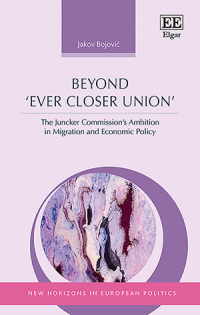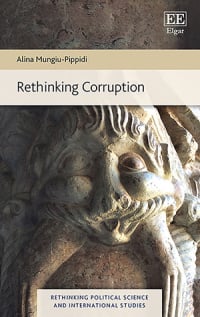
Hardback
Research Methods in Deportation
The Power-Knowledge Approach
9781035313105 Edward Elgar Publishing
This prescient book explores how to confront the methodological and ethical challenges in researching deportation. Agnieszka Radziwinowiczówna introduces a ‘power-knowledge’ approach, crucially taking into account the power imbalances that emerge at every stage of the deportation research process.
More Information
Critical Acclaim
Contributors
More Information
This prescient book explores how to confront the methodological and ethical challenges in researching deportation. Agnieszka Radziwinowiczówna introduces a ‘power-knowledge’ approach, crucially taking into account the power imbalances that emerge at every stage of the deportation research process.
Bringing together a diverse group of eminent deportation scholars, Research Methods in Deportation makes methodological recommendations on the recruitment of research participants, the inclusion of underrepresented demographic groups, longitudinal research into deportations and co-dissemination. The proposed power-knowledge approach counters the existing positivist paradigm that seeks to extract data from research participants, instead prioritising participants’ agency and including them in knowledge co-production. Chapters cover the challenges in researching violent deportation practices and negotiating access for research post-deportation, the methodological challenges of bilingual research in prison, white privilege and the involution of deportation research.
This book will be essential reading for students, academics and researchers in migration studies, refugee studies, sociology, anthropology, and social policy. Offering concrete methodological guidance and advice, it will also be beneficial for practitioners in non-governmental organisations conducting research among potentially deportable and deported people.
Bringing together a diverse group of eminent deportation scholars, Research Methods in Deportation makes methodological recommendations on the recruitment of research participants, the inclusion of underrepresented demographic groups, longitudinal research into deportations and co-dissemination. The proposed power-knowledge approach counters the existing positivist paradigm that seeks to extract data from research participants, instead prioritising participants’ agency and including them in knowledge co-production. Chapters cover the challenges in researching violent deportation practices and negotiating access for research post-deportation, the methodological challenges of bilingual research in prison, white privilege and the involution of deportation research.
This book will be essential reading for students, academics and researchers in migration studies, refugee studies, sociology, anthropology, and social policy. Offering concrete methodological guidance and advice, it will also be beneficial for practitioners in non-governmental organisations conducting research among potentially deportable and deported people.
Critical Acclaim
‘In their timely collection on ethics and methodology in deportation studies, the editors and authors have succeeded in setting new standards. In a conceptually sophisticated way, the contributions inquire into issues around power and positionality in the research process around enforced removals and assisted voluntary returns. This sophisticated account is bound to become an essential guide for understanding the importance of the power-knowledge nexus not only in migration studies but also in qualitative methodology.’
– Thomas Faist, Bielefeld University, Germany
– Thomas Faist, Bielefeld University, Germany
Contributors
Contributors include: Judith Altrogge, Lior Birger, Lisa Marie Borrelli, Almudena Cortés, Tesfalem (Saimon) Fisaha, Alessandro Forina, Barak Kalir, Witold Klaus, Agnieszka Martynowicz, Nevena Nancheva, Agnieszka Radziwinowiczówna, Susanne U. Schultz, Shahar Shoham, Justyna Włodarczyk-Madejska, Dominik Wzorek




